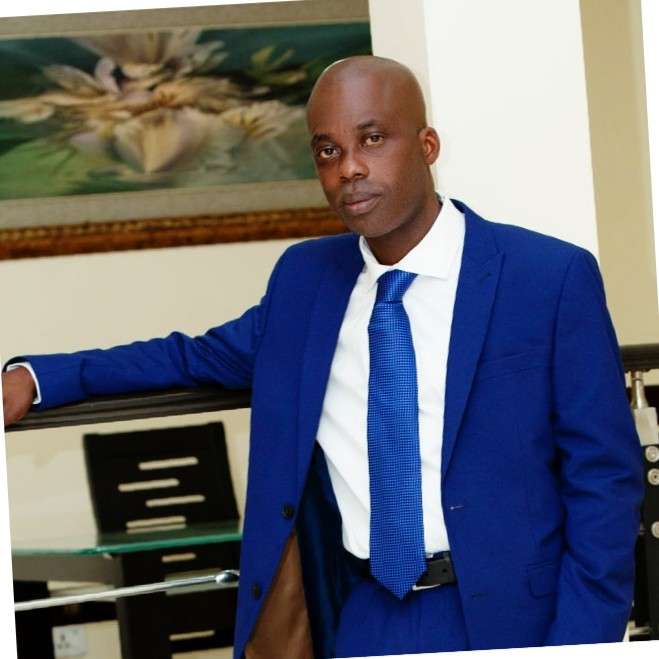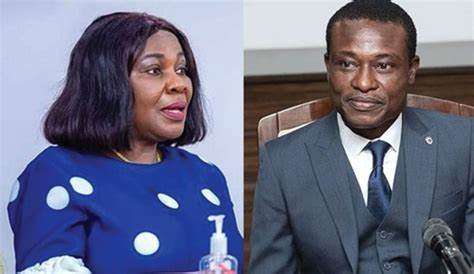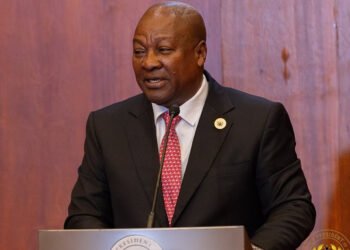In recent times, the Ghanaian public has become increasingly outraged with what appears to be an apparent ineffectiveness of key state institutions tasked with investigating corruption and ensuring accountability among public officials.
The Office of the Special Prosecutor (OSP), the Economic and Organized Crime Office (EOCO), and even the Attorney-General’s office have come under severe criticism for their perceived failures in investigating the former Minister for Sanitation and Water Resources, Cecilia Dapaah for alleged corruption and financial impropriety.
Dr Kwame Asiedu Sarpong, a Democracy and Development Fellow at the Ghana Centre for Democratic Development, reacting to the Executive Director of the Economic and Organised Crime Office, Maame Yaa Tiwa Addo-Danquah’s latest remarks on her outfit returning the docket it received from the Office of the Special Prosecutor (OSP) regarding the investigation of the former Minister expressed disappointment.
He lamented over the inability of these agencies to unearth unexplained wealth allegedly hidden by the former Cabinet Minister.
He questioned the country’s much-touted quest of fighting corruption and financial irregularities, lamenting the lack of action on the part of some key state institutions.
“Between the OSP, EOCO, and the AG, we are being told unexplained money cannot be found in the bedroom of a former Cabinet Minister, and there is nothing we can do to unravel the mystery. Wow, maybe just maybe, we are not a serious country”.
Dr Kwame Asiedu Sarpong

Calls to Overhaul State Investigative Agencies
The sentiment expressed by Dr Kwame Asiedu Sarpong, the renowned Pharmacist was echoed by Professor H. Kwesi Prempeh, Executive Director of the Ghana Centre for Democratic Development (CDD-Ghana).
Professor Prempeh while expressing disappointment in the failure of key state institutions in investigating the former Sanitation Minister went further to call for immediate overhaul of some state institutions including the Office of the Special Prosecutor, Economic and Organized Crime Office and the Attorney General.
He posited that such an action would go a long way to saving the country the cost and expenditures associated with the operation of such state institutions.
The gravity of the sentiments expressed by Professor H. Kwesi Prempeh and Dr Kwame Asiedu Sarpong underscores the deep-seated frustration felt by many Ghanaians towards the perceived impunity and lack of accountability among the political elite.
Despite the establishment of specialized agencies like the Office of the Special Prosecutor and Economic and Organized Crime Office, corruption allegations continue to plague the country, thereby eroding public trust in most institutions.
The Office of the Special Prosecutor, in particular, was established with much optimism, with many Ghanaians touting the move as a beacon of hope in the country’s fight against corruption.
However, its track record thus far has been marred by delays, lack of prosecutorial action, perceived political interference and a seeming inability to hold high-profile individuals accountable.
Similarly, the Economic and Organized Crime Office tasked with investigating economic and organized crime over the years has faced criticism for its perceived inefficiency and politicization.
The perceived failure of these agencies to deliver on their mandate not only undermines the rule of law but also perpetuates a culture of impunity where corrupt officials operate with impunity, knowing that they are unlikely to face consequences for their actions.
As Ghana strives to consolidate its democracy and foster sustainable development, the urgent need for effective and independent state institutions cannot be overstated.
The current state of affairs, as highlighted by Dr. Sarpong and Professor Prempeh, calls for urgent action.
The government must therefore ensure that these state institutions are adequately resourced, staffed with competent personnel, and shielded from political interference.
Moreover, there must be a renewed commitment from the government to prioritize the fight against corruption and uphold the principles of transparency and accountability.
It is only through decisive action and genuine reforms that can help Ghana to restore public confidence in its institutions and fulfil the aspirations of its citizens for a more just and equitable society.
Failure to do so risks not only undermining the country’s democratic gains but also perpetuating the cycle of corruption and underdevelopment.
READ ALSO: Voter Trends Pose Threat to Incumbent Party’s Majority in Parliament























